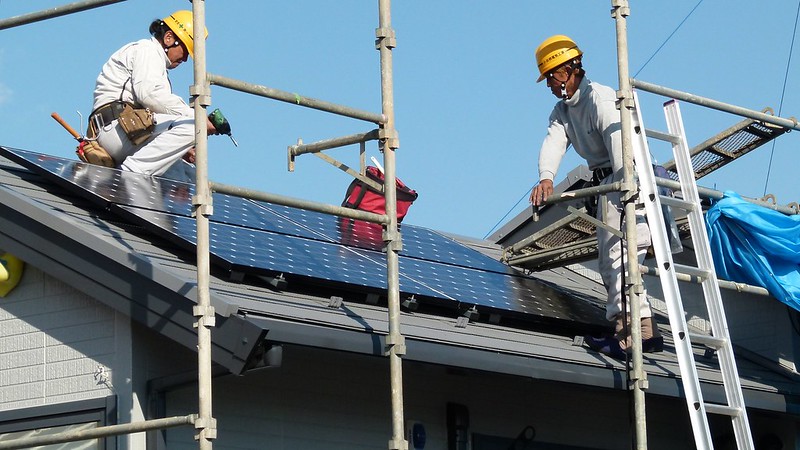Peer-to-peer energy trading, in which consumers and businesses produce and sell electricity between themselves, appears poised to take off in Japan. Two peer-to-peer (P2P) initiatives, one already underway in Gunma Prefecture and another kicking off next month in Ehime Prefecture, have brought Toshiba Corp, the JA Group and Itochu Corp into collaboration with local governments and dozens of homeowners with solar panels.
The common thread for these separate initiatives is TRENDE, a solar installation and energy trading company set up by TEPCO six years ago, but now owned by Itochu. The startup has developed a blockchain technology that facilitates P2P transactions.
Due to Japan’s high population density and rapid expansion of solar power in the years after the March 2011 Fukushima disaster, there is a high potential for P2P energy trading to assist the country in meeting carbon-reduction targets, especially as solar power installations have slowed since the 2022 phase-out of the Feed-in Tariff (FIT). As selling excess energy directly to users via a P2P platform is generally more profitable than selling it back to the grid, P2P trading could help stimulate another wave of solar energy expansion.
While there have been previous P2P projects in Japan, they mostly focused on developing the microgrids and blockchain technologies that support the system. These new initiatives stand out as practical pilot projects that bring together consumers, EVs, factories and agricultural facilities. And both of the new projects have been designed for scalability.

